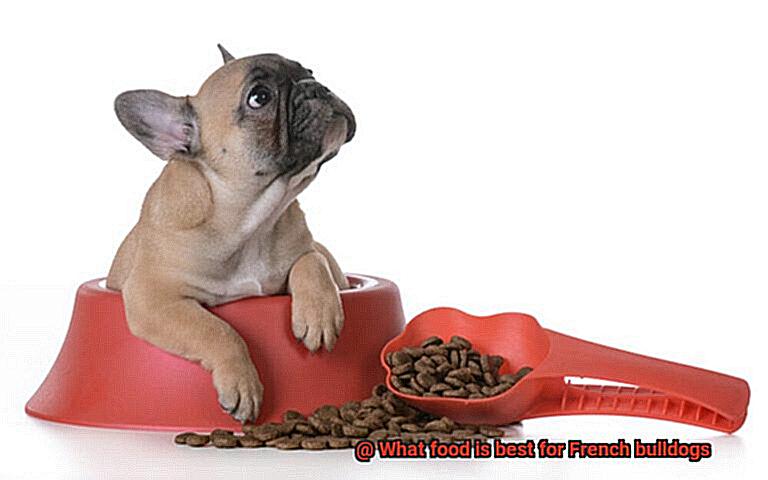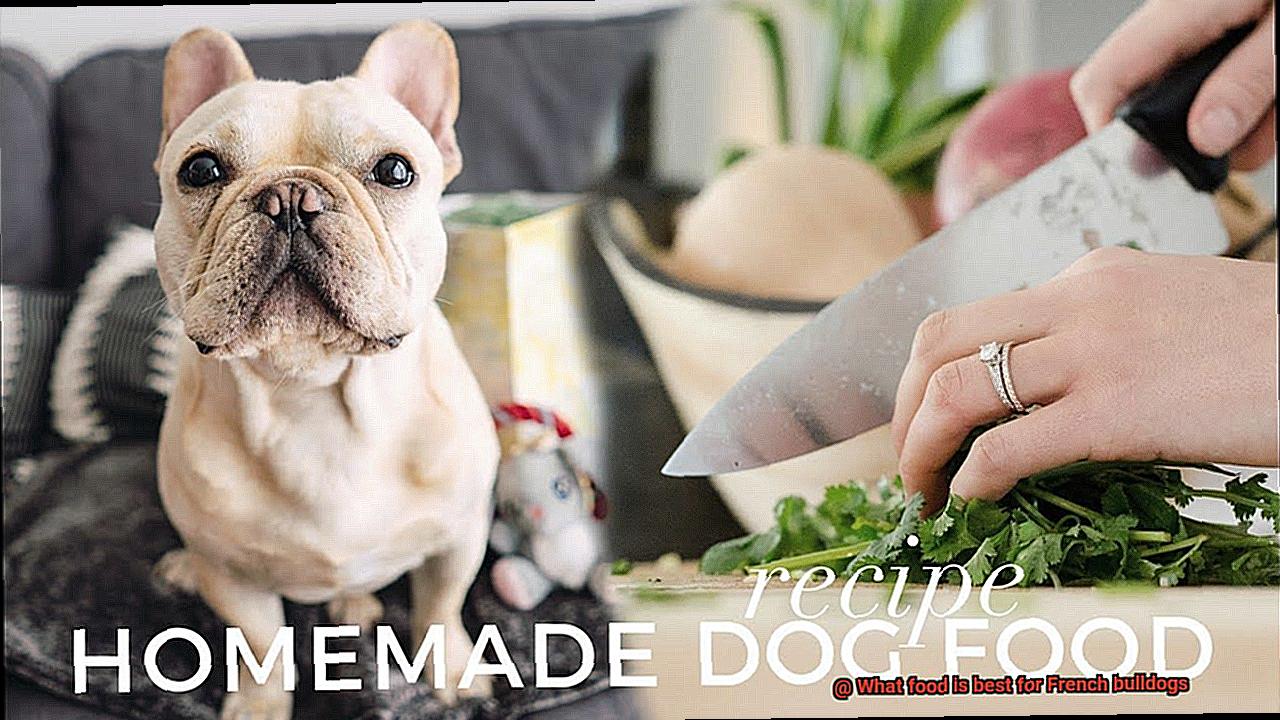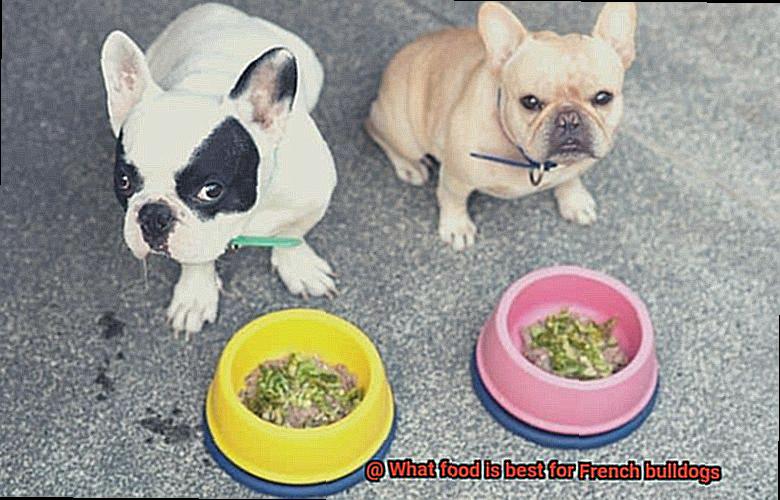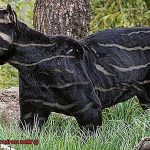What food is best for French bulldogs?
French bulldogs are undeniably adorable, with their charming bat-like ears and expressive eyes. These small yet muscular dogs are not just pets; they become cherished companions who bring joy to our lives. But when it comes to their food, choosing the right options is crucial for their overall health and well-being.
To keep your French bulldog thriving, you need to consider their unique dietary needs. The best food choices for these lovable pups go beyond just being delicious – they provide the essential nutrients that support their body structure and help prevent common health issues.
From top-notch kibble and mouth-watering wet food to homemade meals and even raw diets, there’s a wide range of options available. In this blog post, we’ll dive into the different types of food that are best suited for French bulldogs. We’ll also explore important considerations to ensure your furry friend’s dietary needs are met.
So, let’s embark on this culinary journey together and discover the perfect food choices that will keep your French bulldog happy, healthy, and wagging its tail with delight.
Nutritional Requirements for French Bulldogs
Contents
- 1 Nutritional Requirements for French Bulldogs
- 2 Types of Dog Food to Consider for French Bulldogs
- 3 Allergens to Avoid in French Bulldog Diets
- 4 Tailoring Your French Bulldog’s Diet to their Age and Activity Level
- 5 The Benefits of Homemade and Raw Diets for French Bulldogs
- 6 Feeding Guidelines for French Bulldogs
- 7 Monitoring Your French Bulldog’s Weight and Health
- 8 Tips on Choosing the Right Dog Food for Your French Bulldog
- 9 Conclusion
French Bulldogs are adorable and lovable companions that bring joy to any household. As responsible pet owners, it’s our duty to ensure they receive the best care, starting with their nutrition. In this guide, we’ll explore the specific nutritional requirements of French Bulldogs and offer tips on providing them with a well-balanced diet that promotes their overall health and happiness.
Protein Powerhouse:
French Bulldogs require a diet rich in high-quality protein sources to support their muscle development and repair. Look for dog foods that list real meat as the first ingredient, such as chicken, beef, or fish. Avoid fillers like meat by-products and opt for premium options that prioritize quality proteins.
Healthy Fats for Radiant Coats:
To maintain a shiny coat and healthy skin, French Bulldogs need a good balance of healthy fats in their diet. Omega-3 fatty acids, found in fish oil or flaxseed oil, have anti-inflammatory properties that can benefit dogs with allergies or joint issues. Look for dog foods that include these essential fats to keep your Frenchie looking their best.
Mindful Carbohydrates:
While carbohydrates are an energy source for dogs, French Bulldogs need them in moderation to prevent weight gain and digestive issues. Opt for dog foods that contain easily digestible carbohydrates like sweet potatoes or peas rather than processed grains. A balanced carbohydrate intake will keep your Frenchie feeling satisfied without the risk of excessive weight gain.
Essential Vitamins and Minerals:
French Bulldogs require specific vitamins and minerals to support various bodily functions. Ensure their diet includes vitamin A for vision, vitamin D for bone health, vitamin E for immunity, B vitamins for overall health, calcium and phosphorus for strong bones, and zinc for a healthy coat. These nutrients can be found in high-quality dog foods or through supplementation if recommended by your veterinarian.
Individualized Needs:
Each French Bulldog is unique, and their nutritional needs may vary. Factors such as age, activity level, and any existing health conditions should be considered when choosing the right diet. Consult with your veterinarian to determine the best approach for your Frenchie’s specific needs and make necessary adjustments as they grow and develop.
Types of Dog Food to Consider for French Bulldogs
French Bulldogs are adorable and lovable companions, but did you know that they have specific dietary needs? It’s important to choose the right food for your furry friend to keep them healthy and happy. Here are some types of dog food to consider for your French Bulldog:
- Dry Dog Food: Dry dog food, also known as kibble, is a popular choice for many pet owners. It is convenient, easy to store, and helps keep your dog’s teeth clean. Look for a high-quality brand that contains real meat as the main ingredient. Avoid dog foods that have fillers and artificial ingredients, as they may not provide the nutrition your French Bulldog needs.
- Wet Dog Food: Wet dog food comes in cans or pouches and has a higher moisture content than dry dog food. This type of food is great for French Bulldogs who have dental issues or older dogs who may have trouble chewing. Wet dog food is rich in flavor and often contains real meat and vegetables. However, it can be more expensive and has a shorter shelf life once opened.
- Raw Diet: Some French Bulldog owners choose to feed their pets a raw diet. This diet consists of raw meat, bones, fruits, and vegetables. Proponents of the raw diet believe it mimics what dogs would eat in the wild and provides optimal nutrition. However, feeding a raw diet requires careful planning and research to ensure your French Bulldog gets all the necessary nutrients.
- Grain-Free Dog Food: Many French Bulldogs have food sensitivities or allergies, so a grain-free diet may be beneficial for them. Grain-free dog food eliminates common grains like wheat, corn, and soy, which can trigger allergies in some dogs. However, recent studies have raised concerns about a potential link between grain-free diets and a heart condition called dilated cardiomyopathy (DCM) in certain breeds, including French Bulldogs. It’s important to consult with your veterinarian before deciding on a grain-free diet.
- Prescription Diets: In some cases, French Bulldogs may require special prescription diets due to specific health conditions. These diets are formulated by veterinarians and are designed to address your dog’s nutritional needs. If your French Bulldog has allergies, digestive issues, or kidney problems, a prescription diet may be the best option for them.

Remember, every dog is unique, so what works for one French Bulldog may not work for another. It’s important to consult with your veterinarian to determine the best type of dog food for your furry friend. They can provide valuable insights based on your dog’s specific needs and help you make an informed decision.
Allergens to Avoid in French Bulldog Diets
French Bulldogs are known for their sensitive digestive systems and prone to food allergies. As a responsible owner, it is crucial to be aware of the common allergens that can cause discomfort and health issues in your furry friend. By avoiding these allergens, you can ensure a healthy and happy diet for your French Bulldog.
- Grains: One of the most common allergens in dog food is grains, especially wheat, corn, and soy. These ingredients are cheap fillers used in many commercial dog foods but can trigger allergic reactions in French Bulldogs. Symptoms of grain allergies include itchy skin, gastrointestinal issues, and ear infections. To avoid these allergens, opt for grain-free dog food options that use alternative carbohydrate sources like sweet potatoes or peas.
- Poultry: Another allergen to watch out for in French Bulldog diets is poultry. Chicken and turkey are often found to cause allergies in dogs, leading to skin irritations and digestive problems. If you suspect your French Bulldog is allergic to poultry, consider switching to a protein source like fish or beef. Always read the ingredient list on dog food labels carefully to ensure poultry is not included.
- Dairy products: Dairy products can also be problematic for French Bulldogs with lactose intolerance or dairy allergies. Many dogs have difficulty digesting lactose, which can result in diarrhea, vomiting, or gastrointestinal discomfort. To avoid these issues, steer clear of dairy-based treats or foods. Instead, offer lactose-free alternatives like coconut milk or yogurt specifically formulated for dogs.
- Food additives and preservatives: Food additives and preservatives are another category of allergens that should be avoided in French Bulldog diets. Artificial colors, flavors, and chemical preservatives like BHA and BHT can cause adverse reactions in some dogs, including skin rashes and gastrointestinal upset. Look for dog food options that are free from artificial additives and opt for natural preservatives like Vitamin E or rosemary extract.
- Fruits and vegetables: Lastly, certain fruits and vegetables can also trigger allergies in French Bulldogs. While fruits and vegetables are generally healthy for dogs, some like grapes, raisins, onions, and garlic can be toxic or cause allergic reactions. It is important to research and ensure the safety of any new fruits or vegetables before feeding them to your French Bulldog. Stick to safe options like apples, bananas, carrots, and green beans.
Tailoring Your French Bulldog’s Diet to their Age and Activity Level
French Bulldogs are adorable little bundles of joy, but when it comes to their diet, one size does not fit all. Just like us humans, these lovable pups have different nutritional needs depending on their age and activity level. So, let’s dive into the world of French Bulldog diets and explore how to create a comprehensive diet plan for your furry friend.
Puppies – Growing Bodies Need Extra Fuel
Just like a rocket ship blasting off into space, puppies need fuel to support their rapid growth and development. Their diet should be rich in nutrients, with a focus on high-quality protein, essential vitamins, and minerals. Puppy-specific food is recommended until they reach around 12 months of age. It’s like giving them a booster pack to help them reach for the stars.
Adults – A Well-Balanced Diet for Active Bulldogs
Adult French Bulldogs have different dietary requirements. They need a well-balanced diet that provides them with all the necessary nutrients while maintaining a healthy weight. The protein content can be slightly reduced compared to puppies, but it should still be of high quality. If your Frenchie is as active as a squirrel gathering nuts or loves long walks in the park, they may require a higher calorie intake. But if they prefer snoozing on the couch like a sleepy sloth, it’s important to adjust their portion sizes accordingly to prevent weight gain.
Seniors – Special Care for Aging Bulldogs
As our furry friends enter their golden years, their dietary needs may change due to age-related conditions such as joint problems or digestive issues. It’s like giving them a gentle pat on the back and making sure they’re comfortable in their twilight years. Consulting with a veterinarian can help determine the best diet for your aging Frenchie and ensure they receive the proper care they deserve.
Health Issues – Watch Out for Allergies and Sensitivities
French Bulldogs, like other breeds, can be prone to certain health issues. Allergies, sensitive stomachs, and dental problems are common culprits. It’s like navigating a minefield, but with the right diet, you can help keep your Frenchie healthy and happy. Specialized diets may be recommended in some cases, so it’s always best to consult with a veterinarian to address any specific concerns.
Monitoring and Adjusting – Keep an Eye on their Weight and Body Condition
Just like us humans, French Bulldogs can pack on the pounds if their diet is not carefully monitored. Regular check-ups with a veterinarian can help ensure that your Frenchie’s nutritional needs are being met. It’s like having a personal trainer who keeps them in tip-top shape.
The Benefits of Homemade and Raw Diets for French Bulldogs
French Bulldogs are beloved companions known for their adorable looks and playful personalities. As responsible pet owners, we want to ensure that our furry friends lead healthy and happy lives. One way to achieve this is by providing them with a homemade or raw diet, which offers a range of benefits tailored specifically to the needs of French Bulldogs.
Complete Control over Ingredients:
By preparing meals at home, you have the power to choose the best ingredients for your French Bulldog. This is particularly important for dogs with dietary restrictions or allergies. You can avoid common allergens such as grains, soy, and artificial additives that may trigger sensitivities in your Frenchie.
Fresh and High-Quality Nutrition:
Homemade diets allow you to use fresh and high-quality ingredients, ensuring that your French Bulldog receives optimal nutrition. Fresh meats, fruits, and vegetables provide essential vitamins, minerals, and antioxidants that support overall health and well-being. Plus, the absence of preservatives commonly found in commercial dog food can contribute to improved digestion and a stronger immune system.
Mimicking Ancestral Diets with Raw Food:
Raw diets have gained popularity among French Bulldog owners due to their ability to mimic a dog’s ancestral diet. These diets typically consist of raw meat, bones, organs, and some fruits and vegetables. Advocates claim that this natural approach can improve digestion, boost the immune system, and promote healthy skin and coat in French Bulldogs.
No Harmful Additives or Preservatives:
Commercial dog food often contains additives and preservatives that can be detrimental to your Frenchie’s health. By opting for homemade or raw diets, you eliminate these potentially harmful substances from your dog’s diet. This can contribute to better long-term health outcomes and reduce the risk of developing allergies or other health issues associated with artificial ingredients.
Variety and Mealtime Excitement:
Homemade and raw diets provide the opportunity to introduce a variety of ingredients to your French Bulldog’s meals. This not only prevents food boredom but also encourages a healthy appetite. By rotating proteins, fruits, vegetables, and grains, you can keep mealtimes exciting for your Frenchie, ensuring they enjoy their food while receiving a well-rounded nutritional profile.
Feeding Guidelines for French Bulldogs
Why Following Feeding Guidelines is Crucial for French Bulldogs
French Bulldogs are adorable and lovable companions, but they come with unique dietary needs that require special attention. As an expert on French Bulldog nutrition, I cannot stress enough the importance of following feeding guidelines to ensure their overall health and well-being. Let’s dive into why these guidelines are essential and how they can benefit your furry friend.
Preventing Obesity and Digestive Issues
French Bulldogs have a tendency to gain weight easily, which can lead to obesity and a host of other health problems. Following feeding guidelines helps you provide the right amount of food to maintain a healthy weight for your Frenchie. Overfeeding can strain their joints, increase the risk of heart disease, and exacerbate respiratory difficulties – common issues in this breed.
Choosing High-Quality Food
Feeding your French Bulldog a high-quality dog food specifically formulated for small breeds is vital. Look for brands that prioritize real meat as the first ingredient and avoid fillers, artificial additives, and by-products. This ensures that your Frenchie receives essential nutrients without unnecessary fillers that can cause digestive upset.
Individualized Feeding
While the feeding guidelines on the packaging serve as a starting point, it’s crucial to consider your Frenchie’s individual needs. Factors such as activity level, age, and overall health should be taken into account when determining the appropriate amount of food. Your veterinarian can provide personalized recommendations based on your specific Frenchie’s needs.
Gradual Diet Changes
French Bulldogs are known to have sensitive stomachs, so sudden changes in their diet can lead to digestive issues. If you decide to switch their food, do it gradually over several days by mixing small amounts of the new food with the old one. This allows their digestive system to adjust slowly and minimizes the risk of tummy troubles.
Preventing Bloating
French Bulldogs are prone to bloating, a condition that can be life-threatening. Feeding them two or three smaller meals throughout the day rather than one large meal can help prevent this issue. Additionally, avoid feeding your Frenchie immediately before or after vigorous exercise to reduce the risk of bloat.

Mindful Treats

Treats are a great way to reward your Frenchie, but moderation is key. Treats should not exceed 10% of their daily calorie intake and should be healthy options specifically designed for dogs. Avoid giving them table scraps or human food, as it can lead to digestive problems and reinforce begging behaviors.
Hydration is Key
Providing fresh water at all times is essential for your French Bulldog’s health. Clean their water bowl regularly and refill it with clean water throughout the day. Dehydration can lead to serious health issues, so make sure your Frenchie always has access to water.
Monitoring Your French Bulldog’s Weight and Health
Did you know that these lovable little pooches are prone to certain health issues? That’s right, maintaining a watchful eye on your French Bulldog’s weight and overall health is essential for their well-being. In this guide, we’ll explore why monitoring their weight is crucial, how to do it effectively, and provide valuable tips to keep your Frenchie in tip-top shape.
Why Weight Monitoring Matters
- Obesity and its consequences: French Bulldogs have a tendency to pack on the pounds, making them susceptible to obesity-related health problems like joint issues, diabetes, and heart disease.
- Early detection of health issues: Regular weight monitoring can help identify any sudden changes that may indicate underlying health problems, allowing for timely intervention.
- Optimal nutrition: By tracking weight, you can ensure your Frenchie is receiving the right amount of nutrients without over or underfeeding.
Establishing a Monitoring Routine
- Weighing your Frenchie: Use a pet scale or visit your veterinarian once a month for accurate measurements.
- Assessing body condition: Observe their body shape and feel their ribs gently for the ideal waistline and rib visibility indicative of a healthy weight.

Feeding Your Frenchie Right
- Consult with your veterinarian: Determine the best diet suited to your Frenchie’s age, activity level, and any specific dietary needs or restrictions.
- Choose high-quality commercial dog foods formulated for small breeds or French Bulldogs.
- Avoid table scraps and overfeeding to prevent weight gain and associated health issues.
Ensuring Overall Health
- Regular veterinary check-ups: Catch potential health issues early and receive guidance on vaccinations and maintaining a healthy lifestyle.
- Exercise for a happy Frenchie: Daily walks, interactive play sessions, and mental stimulation activities promote physical and mental well-being.

Tips on Choosing the Right Dog Food for Your French Bulldog
French Bulldogs are adorable and lovable companions, but they have unique dietary needs that require careful consideration. To keep your furry friend healthy and thriving, it’s essential to choose the right dog food that meets their specific nutritional requirements. In this article, we’ll provide you with valuable tips on selecting a high-quality formula that will support your French Bulldog’s overall well-being.
Understand Your French Bulldog’s Unique Needs:
French Bulldogs have sensitive stomachs and tend to gain weight easily, making it crucial to choose a dog food that addresses these concerns. Consult with a veterinarian or professional dog nutritionist to determine the specific dietary requirements of your furry friend.
Opt for High-Quality Formulas:
Look for dog food brands that meet the nutritional standards set by organizations like the Association of American Feed Control Officials (AAFCO). These brands undergo rigorous testing to ensure complete and balanced nutrition for dogs.
Read the Ingredient List Carefully:
Check the ingredient list on dog food labels. Ingredients should be listed in descending order by weight, with high-quality protein sources like chicken or beef listed first. Avoid foods that contain fillers, artificial preservatives, and by-products.
Consider Specific Health Concerns:
French Bulldogs are prone to allergies, skin problems, and digestive sensitivities. Choose dog food formulas that cater to these needs, such as limited ingredient diets or grain-free options. Avoid common allergens like wheat, corn, and soy if your French Bulldog has known allergies.
Look for Quality Protein and Healthy Fats:
Ensure that the dog food formula contains high-quality protein sources like chicken, turkey, or fish. Protein is essential for muscle development and overall health in French Bulldogs. Additionally, opt for formulas with healthy fats containing omega fatty acids to support skin health and coat condition.
Age and Activity Level Matter:
Consider your French Bulldog’s age and activity level when selecting dog food. Puppies have different nutritional requirements than adult dogs, and highly active dogs may need a higher calorie diet compared to less active ones.
Conclusion
When it comes to the best food for French bulldogs, there are a few key factors to consider. Firstly, their unique dietary needs should be taken into account. Frenchies have a tendency to gain weight easily, so it’s important to choose a food that is low in fat and calories. Additionally, they can be prone to allergies and sensitivities, so opting for a grain-free or limited ingredient diet may be beneficial.
Another crucial aspect is the quality of ingredients. Look for foods that contain high-quality protein sources like chicken or fish, as well as healthy fats such as salmon oil or flaxseed. Avoid foods that contain fillers, by-products, or artificial additives – these can lead to digestive issues and overall poor health.
Furthermore, portion control is vital for maintaining a healthy weight in French bulldogs. Feeding them smaller meals throughout the day rather than one large meal can help prevent overeating and obesity.
Lastly, consulting with your veterinarian is always recommended when choosing the best food for your Frenchie. They can provide personalized advice based on your dog’s specific needs and health conditions.
In conclusion, finding the best food for your French bulldog requires careful consideration of their unique dietary needs and preferences. By selecting a high-quality diet that is low in fat and calories, free from fillers and artificial additives, and properly portioned, you can ensure your Frenchie stays happy and healthy for years to come.




